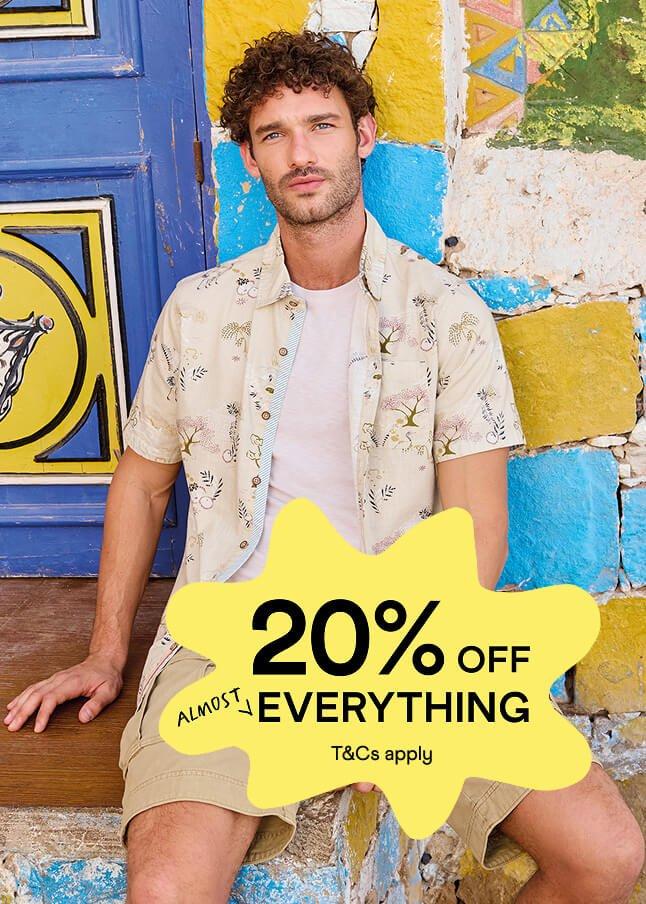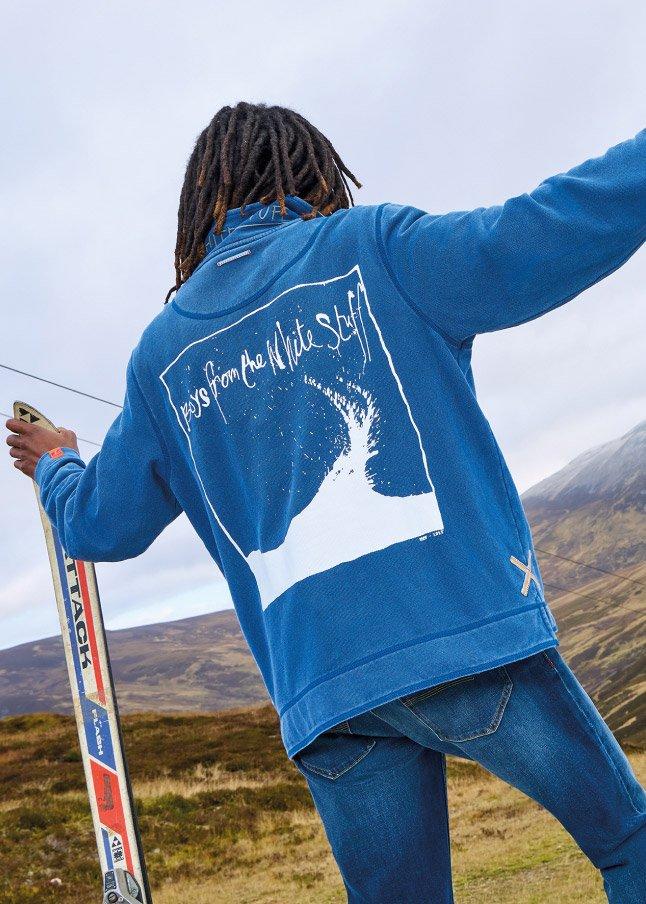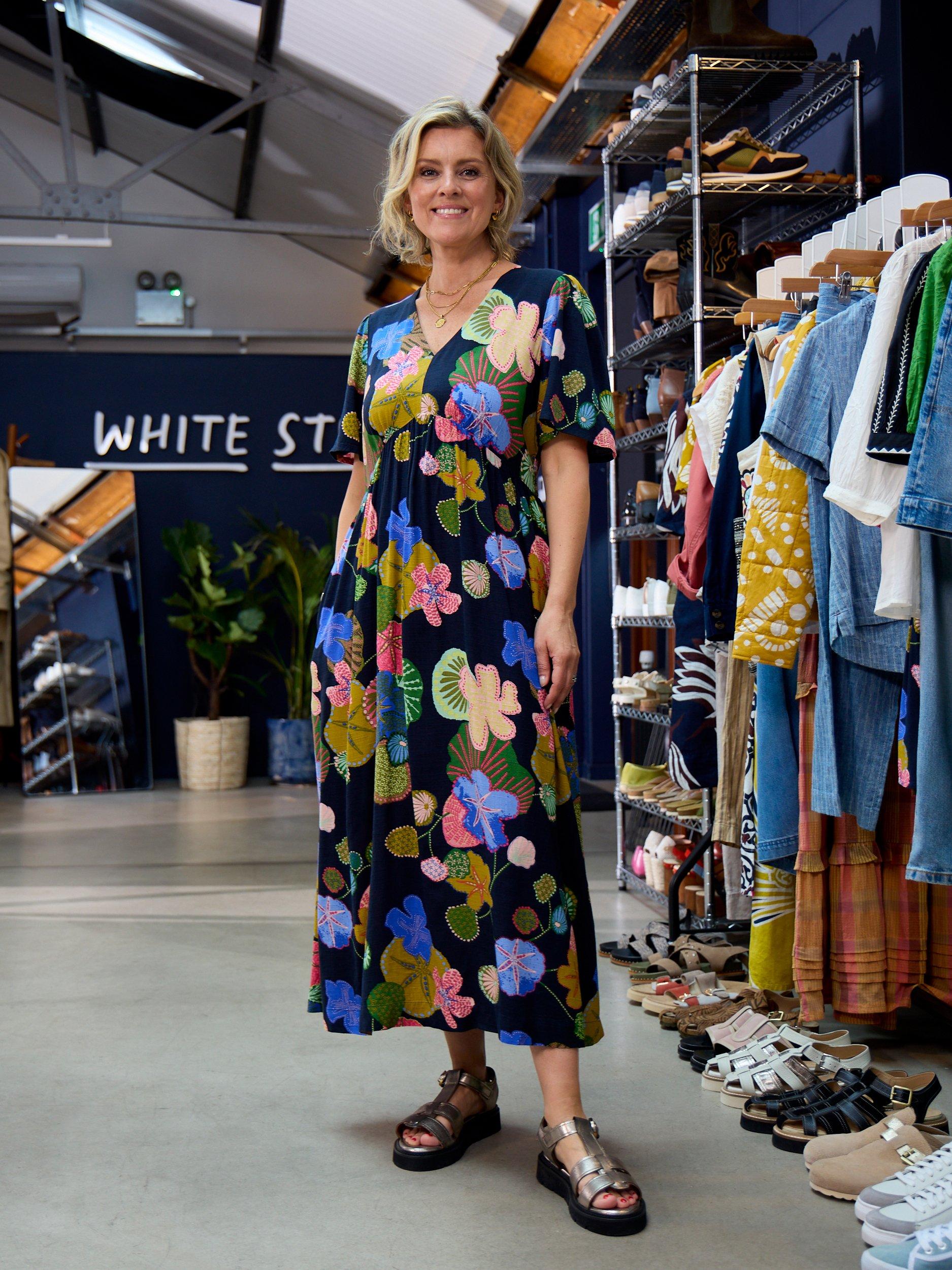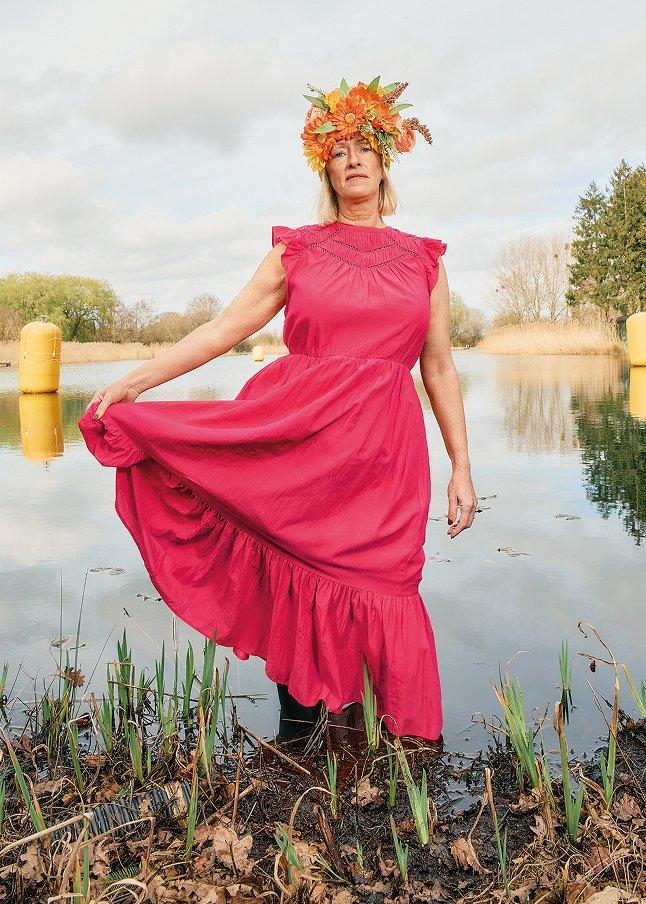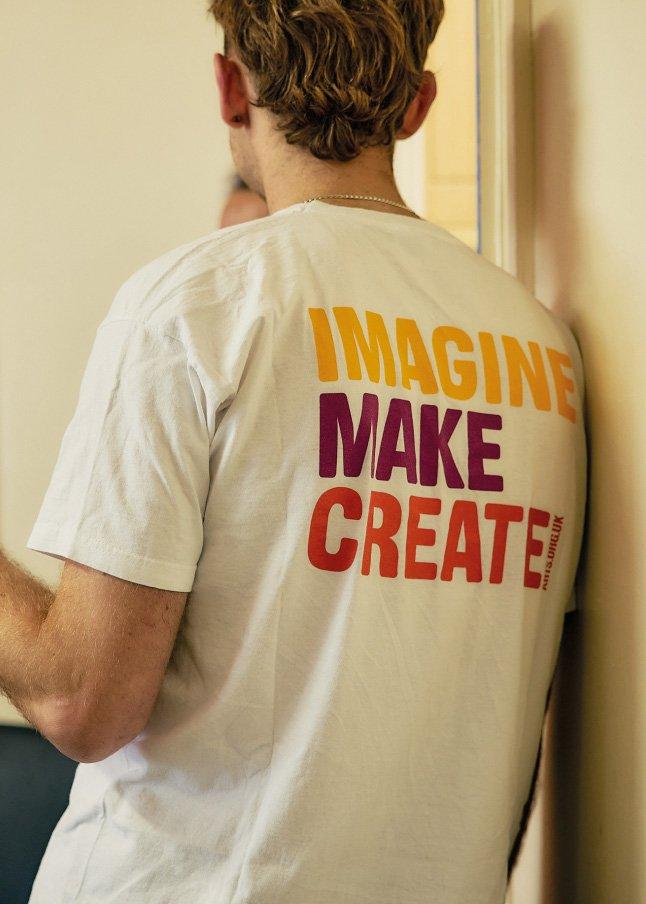WHY YOU SHOULD
CHOOSE FAIRTRADE
We’re committed to working with Fairtrade to source cotton in an ethical way. Here Subindu Garkhel, Senior Cotton and Textiles Lead at Fairtrade, tells us why buying Fairtrade makes a huge difference.
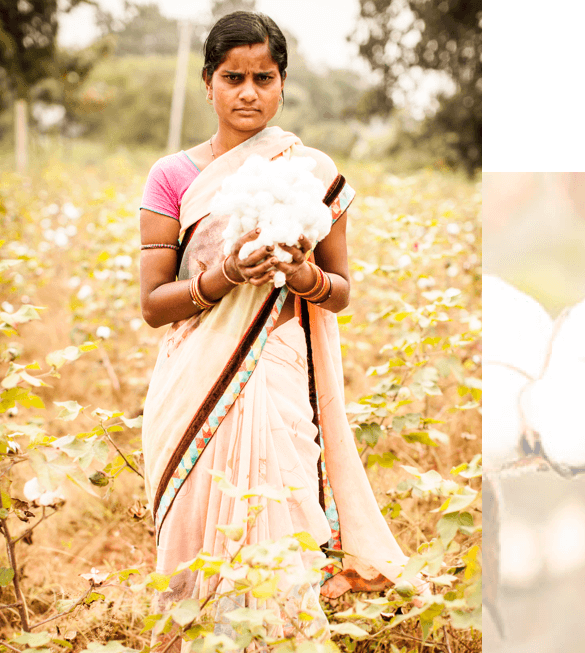
WHAT IS FAIRTRADE SOURCED COTTON?
Fairtrade Sourced Cotton model makes it easier for businesses to source some of their cotton on Fairtrade terms. This way, farmers can sell more of their cotton, which means more benefits for them and their communities. The Fairtrade Cotton Program Mark means that a business buys an agreed amount of raw cotton on Fairtrade terms to use throughout their product ranges. It means the cotton doesn't have to be kept separate, allowing businesses to scale up their Fairtrade commitment.
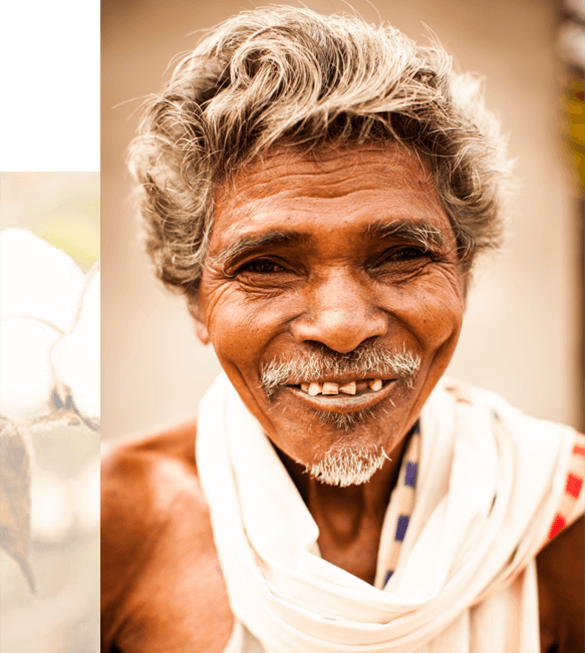
HOW DID THE INITIATIVE GET STARTED?
Fairtrade is a global movement with a strong and active presence in the UK, represented by the Fairtrade Foundation, established in 1992 by CAFOD, Christian Aid, Oxfam, Traidcraft, Global Justice Now, and the National Federation of Women’s Institutes. Our hundreds of Fairtrade Towns, Schools and Universities, Faith Groups and committed supporters are vital in helping us realise our vision of fairtrade.
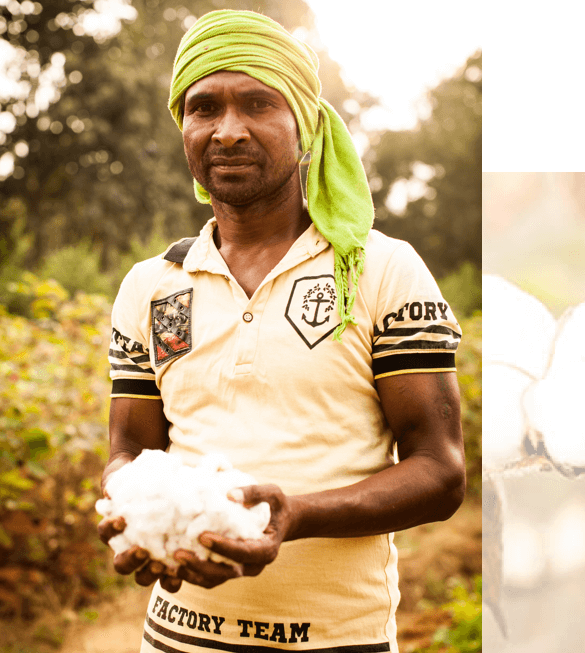
HOW LONG HAS FAIRTRADE WORKED ON THIS INITIATIVE?
This innovative sourcing model was introduced in 2014 as it offers ways for companies and brands to source individual ingredients, and give consumers greater choice and transparency of ethically and sustainably sourced products.
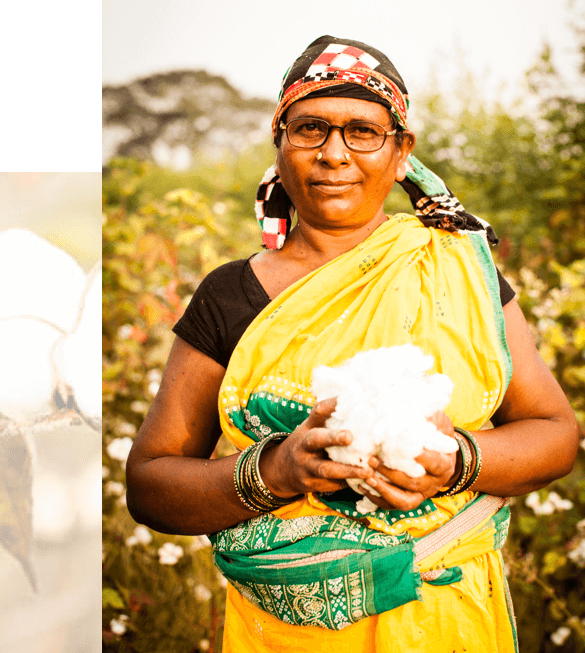
WHY DID YOU FEEL IT WAS AN IMPORTANT GLOBAL ISSUE TO SUPPORT?
With high levels of illiteracy and limited land holdings, many cotton farmers live below the poverty line and are dependent on middle men or ginners who often buy their cotton at prices below the cost of production.
Rising costs of production, fluctuating market prices, decreasing yields and climate change are daily challenges, along with food price inflation and food insecurity. The notorious complexity of the cotton and textile supply chain means that farmers have little power to negotiate with others in the chain to secure better prices.
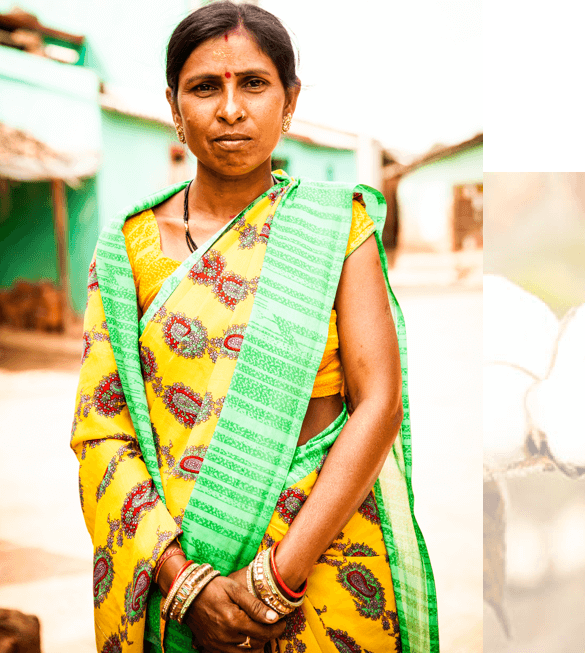
WHICH COTTON FARMS DOES FAIRTRADE WORK WITH?
Fairtrade works with small-scale cotton farmers in Asia and Africa and helps build stronger farmer-owned organisations. This is important because farmers can achieve a lot more together as a group in negotiations with ginners and traders or in supporting the local community.
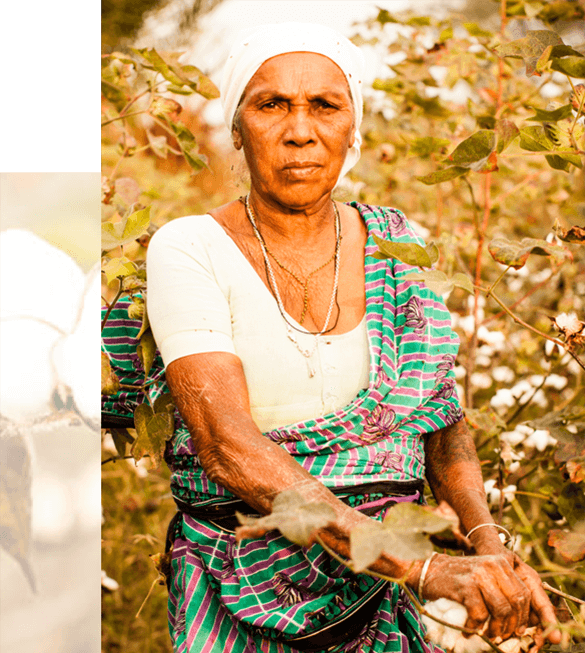
HOW DOES THE FAIRTRADE PRICE AND PREMIUM BENEFIT THE FARMERS BETTER THAN FARMING CONVENTIONAL COTTON?
Producer organisations are audited against Fairtrade Standards, which provide a framework for a sustainable approach to production that can have long-term economic, social and environmental benefits for farmers and their communities. The Fairtrade Minimum Price aims to cover the average costs of sustainable production and acts as a safety net for farmers at times when market prices fall below a sustainable level.
The Fairtrade Premium is an extra sum of money, paid on top of the selling price, that farmers or workers invest in projects of their choice. They decide together how to spend the Fairtrade Premium, such as improving their farming, businesses, or health and education in their community.
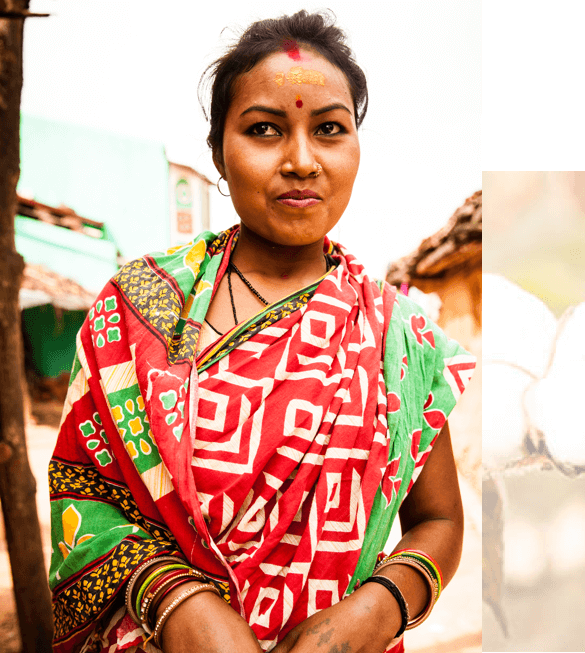
WHAT HAS FAIRTRADE LEARNED ALONG THE WAY?
Since its beginning, Fairtrade has grown to represent over 1.7 million small-scale farmers and workers. But we are still far from achieving our ambitious goal of a world where trade can be a true tool of opportunity and inclusion for all.
The challenges the world faces are intricately interconnected. We cannot address poverty until we address inequality; rampant development exacerbates climate change; any approach to eradicating child labour and forced labour must address sustainable livelihoods throughout value chains; and a lack of equal rights for women inhibits progress across the board.
Fairtrade cannot achieve this alone, but by working in partnership with governments, with companies, with civil society and with farmers and workers – this ambition for the world can become reality.
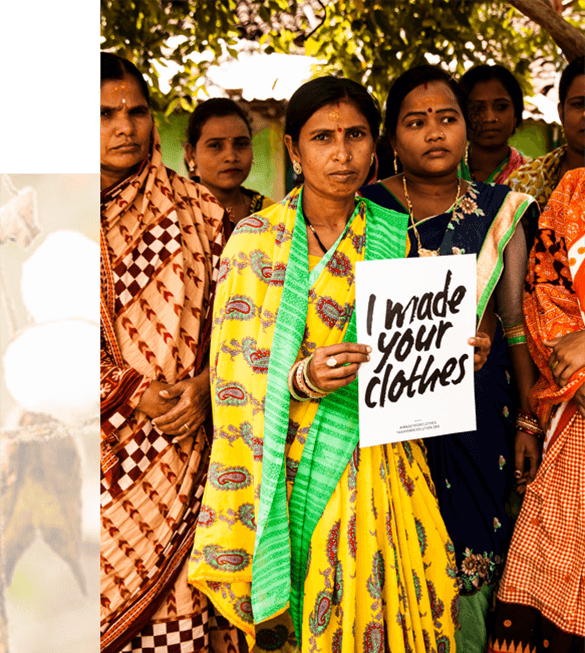
HOW HAVE BRANDS LIKE WHITE STUFF HELPED SUPPORT THE FAIRTRADE MESSAGE?
Companies like White Stuff, that are seeking sustainable supply chains are a critical component of the Fairtrade system – by sourcing Fairtrade products and licensing the FAIRTRADE Marks, they support farmers and workers at Fairtrade producer organizations to take more control over their own futures.
These businesses also offer shoppers an ever-increasing variety of ethically sourced, independently certified choices, showing trade can be fairer, more sustainable and better for all involved.

